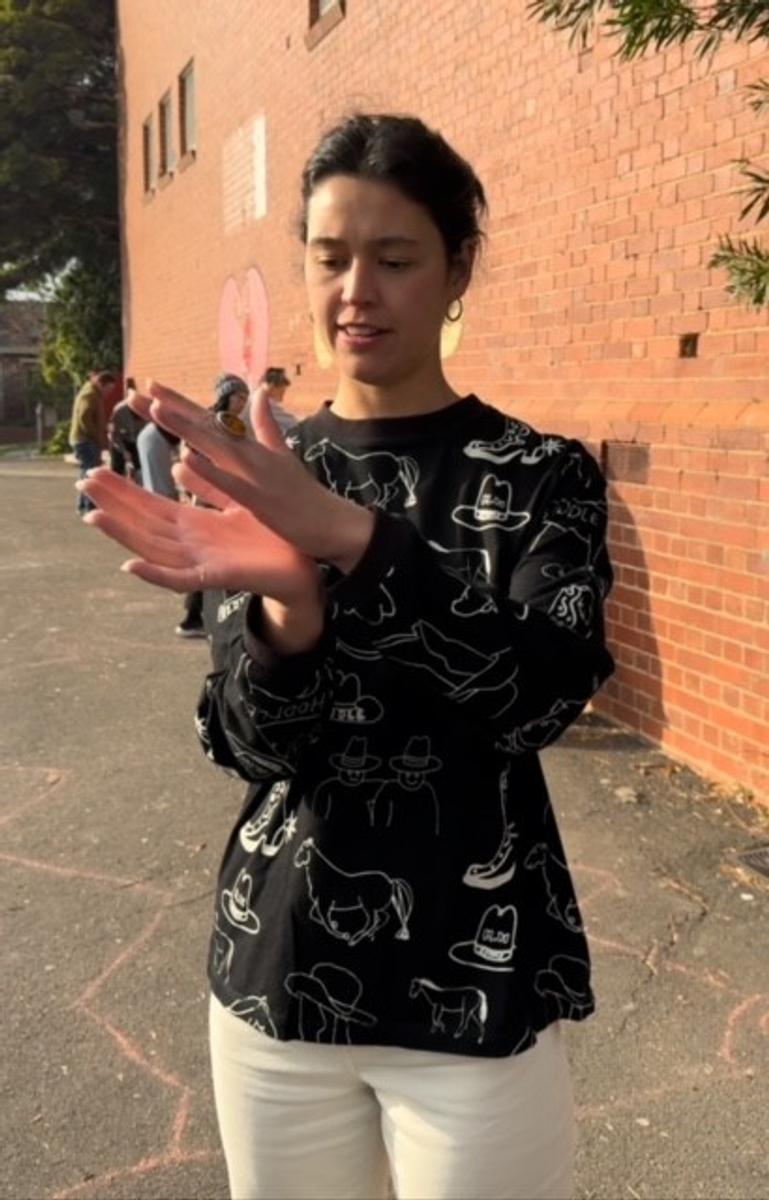A Message from
Hannah & Keir

A Message from
Hannah & Keir
“We would like to acknowledge the Wurundjeri Woi Wurrung people, the first people to dream, create, wonder, dance, play and learn on this breathtaking land. This land was cared for and respected for tens of thousands of years. The First Nations people lived in companionship with the animals and the life on this land. We acknowledge that this is stolen land and we pay our respects to elders, past, present and emerging.”
Rayma Atkinson (2023 Suzanne Peterson Award Recipient)
On Thursday and Friday of last week we had our annual staff conference; this year the focus was on Defining, Designing and Documenting Playful Learning. As always, it was a very busy two days with lots of new learning, exploring and playing as well as reflecting and planning for the future. The sessions have been planned for almost a year, but there was incredible synchronicity between our sessions and the learning objectives of the learning Nici Fausten is doing with us as part of the Project Zero course at Harvard!
We started off Thursday by engaging in some playful activities including measuring angles of slingshots, using Lego to set scenes in writing and building ‘functional’ toilets in reading! Then we used a philosophical circle to unpack the question: Can any learning experience be made playful? The answer we came up with was summarised by ‘Yes, depending on the specific context and the players involved,’ but the discussion branched out in many wonderful directions including, but not limited to ‘When does a learning experience start and end?’ and highlighting the difference between ‘any learning experience’ and ‘every learning experience’.






We explored what educational theorists (including those at Harvard) define as playful learning and why it is of benefit. Playful Learning must include opportunities for the learners to: Find Joy, Lead their Own Learning and Explore the Unknown. Benefits of playful learning are countless, but include excellent benefits to brain development, emotional regulation, problem solving and social connections. Acknowledging that play can look like many different things, to different people and in different contexts, it can sometimes be hard to maintain a comprehensive understanding of play in all its glory. To assist with this we explored Parten’s stages of play and a collection of types of play that we have gathered from a number of sources (see image below).


After this, our teachers were given time to reflect on their planning and consider questions such as:
We finished off our first day by asking teams to redesign a lesson in order to increase the play - with their colleagues as students (which is never an easy task!).




On Friday we dived into the idea of Documentation of learning. Teachers are always gathering data and information about each student’s learning - we also hold a great deal of information about our students in our heads. With Documentation being the observation, recording, interpretation and sharing of student engagement and learning, we know that gathering and storing this information is not enough - it must be shared with others to have its full impact.
We started to reflect on our current modes of Documentation and whether there are any audiences or purposes that could do with a bit more attention. As this article is being published between Student-Led Conferences and Semester Reports, the time certainly seems right! Four of our teachers shared some Documentation they have been part of this year: Celia showed a student Inquiry project that was a video diary of his learning in term 1, Jenny showed videos of student practices to performances, Cath shared her ‘Day Book’ (which documents much more than a day) and Nici shared the learning map of her students’ incredible mapping journey this term.
We hope you all had a wonderful long weekend and thank you for the opportunity to spend this important time working together and developing our pedagogy and teaching practices. We thank the teachers and ESS for their excellent engagement on both days and for stepping outside their comfort zone to explore new ideas. We hope you will start to see more examples of playful learning as the year progresses - either through Documentation or through stories shared from your excited children.